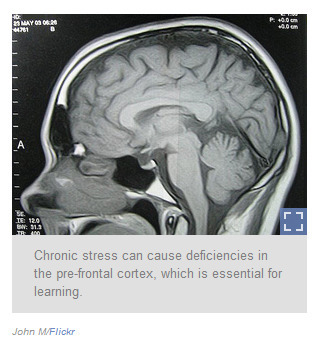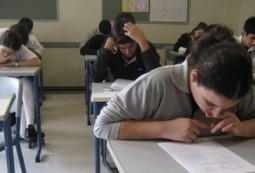In this first installment of a KPCC series, we look at new research that shows the mere act of being poor can affect the brain, making it hard for kids to learn. But the changes are reversible.
|
|
Scooped by Beth Dichter |
How does poverty impact our students, especially students whom live in urban areas where trauma and stress have a significant impact on the developing brain?
Quoting from the post "Children living in poor neighborhoods are more likely to suffer traumatic incidents, like witnessing or being the victims of shootings, parental neglect or abuse. They also struggle with pernicious daily stressors, including food or housing insecurity, overcrowding and overworked or underemployed, stressed-out parents."
Yet it is possible to make a difference, and one school in Los Angeles is proving this with by working with teachers with this goal in mind "...to figure out how to “use positivity and relationships to reverse some of the negative effects of poverty.”
This link will take you to part 1 of this story and the link to part 2 is available in the story. You may also listen to each installment.



 Your new post is loading...
Your new post is loading...









How does being poor potentially affect the brain and learning for kids? How one LA school teaches through trauma..